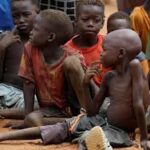The Sleep Crisis in Africa: Rest, Health, and Productivity

Sleep is often called the body’s natural medicine, yet millions of Africans are not getting enough of it. The consequences are far-reaching, affecting not only personal health but also family life, workplace productivity, and national development. In a continent where infectious diseases, poverty, and malnutrition already present daily challenges, sleep health is often overlooked. But ignoring the sleep crisis may be costing Africa more than we realize.
Why Sleep Matters
Sleep is not a luxury—it is a biological necessity. It regulates hormones, repairs tissues, supports immunity, and keeps the brain sharp. Adults need seven to nine hours of quality sleep, while children and adolescents require even more. Without it, the risks of obesity, diabetes, heart disease, depression, and poor cognitive performance skyrocket. For Africa, a continent with a youthful population and growing workforce, healthy sleep is directly tied to human capital and economic growth.
The Sleep Challenges in Africa
-
Urbanization and Modern Lifestyles
African cities are expanding rapidly. With them come artificial light, late-night work shifts, noise pollution, and increased screen time. These factors disrupt natural circadian rhythms, leading to less sleep and poorer quality rest. -
Socioeconomic Pressures
Many Africans juggle multiple jobs, extended working hours, or night shifts to make ends meet. Economic insecurity often forces people to sacrifice rest for survival. -
Health and Environmental Factors
Malaria, sleep-disrupting illnesses, extreme weather conditions, and poor housing all reduce sleep quality. In rural areas, lack of electricity pushes people to bed earlier, but discomfort and harsh living conditions often cut rest short. -
Cultural and Social Norms
In some cultures, long working hours and little sleep are seen as a sign of resilience and hard work. The value of rest is underplayed, leaving many to believe sleep is expendable.
Consequences of Poor Sleep
-
Public Health Risks: Lack of sleep weakens immunity, increasing vulnerability to infectious diseases. It also raises the risk of chronic non-communicable diseases (NCDs), which are already rising across Africa.
-
Reduced Productivity: Sleep-deprived workers are less focused, less creative, and more prone to mistakes. For economies struggling with efficiency gaps, this is a hidden but significant drain.
-
Mental Health Strain: Sleep disorders are closely tied to depression, anxiety, and burnout. In societies where mental health is already stigmatized, poor sleep compounds the silent crisis.
-
Impact on Children and Students: Inadequate rest affects school performance, learning, and long-term development. This has consequences for Africa’s educational outcomes and future workforce.
Solutions: Building a Culture of Healthy Sleep
-
Public Awareness Campaigns
Governments, NGOs, and healthcare providers can promote sleep education, emphasizing its importance for health, work, and learning. -
Workplace and School Policies
Employers should consider fair work schedules, while schools should teach children and parents about sleep hygiene. Simple adjustments—like reducing screen use before bed—make a difference. -
Improved Living Conditions
Better housing, electricity access, and mosquito control can reduce environmental disruptions that affect rest. -
Healthcare Interventions
Training doctors to diagnose and manage sleep disorders can help millions who suffer silently from insomnia, sleep apnea, or restless leg syndrome. -
Leveraging African Traditions
Many African communities have long practiced afternoon rests (siestas) and valued natural rhythms tied to sunrise and sunset. Reviving such practices can inspire culturally aligned solutions.
Conclusion
The sleep crisis in Africa is real—but it is solvable. By recognizing sleep as a health priority, governments, communities, and individuals can unlock better well-being, sharper minds, and stronger economies. Just as nutrition and exercise are vital pillars of wellness, so too is sleep. Africa cannot afford to ignore it any longer.
Written by Fawzi Rufai, Medically Reviewed by Sesan Kareem



